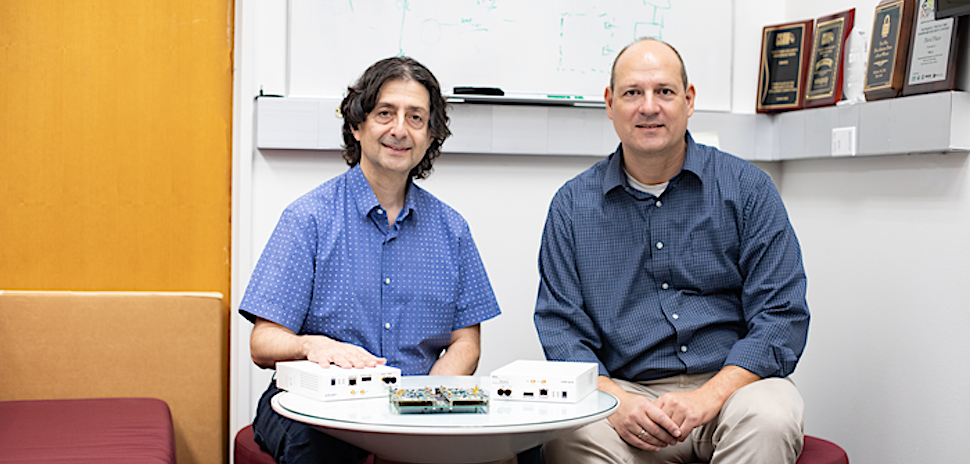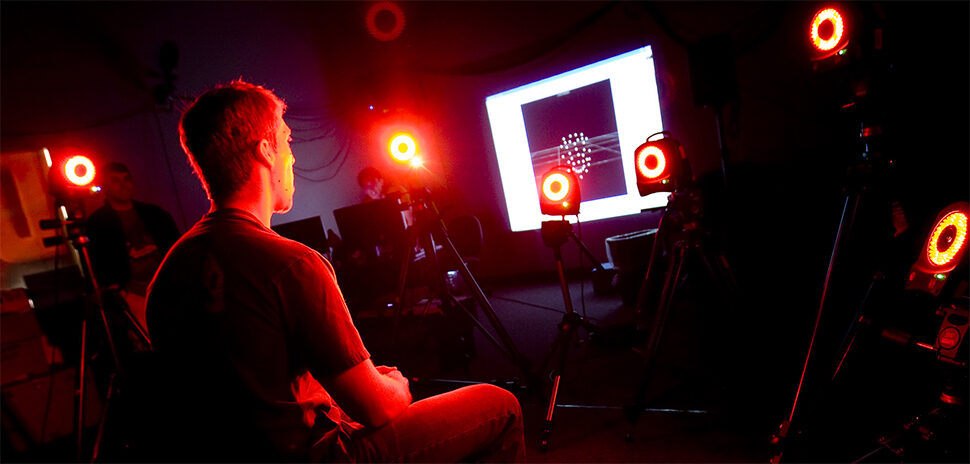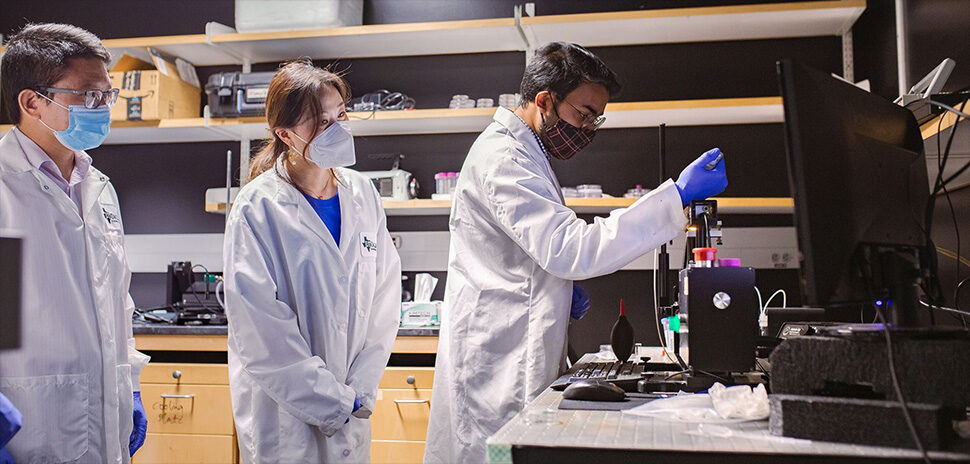“We are entrusting more and more of our data to wireless links.”
Dr. Aria Nosratinia
Erik Jonsson Distinguished Professor of Electrical and Computer Engineering
UT Dallas
.…on he and a colleague receiving a $1 million NSF grant to tackle hardware “trojans.”
 UT Dallas says that black-hat modifications to integrated circuits—known as “hardware trojans”—can disrupt wireless networks and leak sensitive data. And as wireless phones and other devices evolve, the threat is only expected to grow.
UT Dallas says that black-hat modifications to integrated circuits—known as “hardware trojans”—can disrupt wireless networks and leak sensitive data. And as wireless phones and other devices evolve, the threat is only expected to grow.
But two UT Dallas engineers are on the case—and they’ve got a three-year, $1 million National Science Foundation grant to help solve it.
Nosratinia and his co-principal investigator, Dr. Yiorgos Makris, professor of electrical and computer engineering, are investigating how to improve detection and removal of hardware trojans. One way they’re doing that is exploring how to make integrated circuits “more resilient.”
Wireless hardware trojans were once seen as unlikely. But Nosratinia and Makris were the first to demonstrate their threat in a 2017 study. They received a first-place award for the research at the 2018 IEEE International Symposium on Hardware Oriented Security and Trust.
“We’re already seeing many inexpensive wireless-connected devices introduced into the market whose ICs may have come from any number of sources, and their security is difficult to verify or guarantee,” Nosratinia said in a statement. “We also are entrusting more and more of our data to wireless links. This creates an ecosystem where hardware vulnerabilities are rife to be exploited for various forms of harmful or illegal activity.”
Increased U.S. chip manufacturing—much of which is slated to happen in Richardson and Sherman—could help improve the supply chain and bolster semiconductor security, the engineers say. But it won’t solve everything.
“The reality remains that there are so many technology nodes and so many ICs in any communication product that it’s essentially impossible to ensure security and trust through policy,” Makris said.
The engineers aren’t in this alone. Their $1 million grant is part of a $37 million NSF initiative called Resilient and Intelligent Next-Generation Systems (RINGS)—a public-private partnership aimed at accelerating the translation of research findings into new technologies.
UTD says the program includes other universities, government agencies and industry partners, including Apple, Ericsson, Google, IBM Corp., Intel Corp., Microsoft Corp., Nokia Corp., Qualcomm Inc. and VMware Inc. The industry partners aren’t involved in the UT Dallas research, but might collaborate in the future, the university said.
For more on what’s new and next in North Texas, check out Every Last Word.
![]()
Get on the list.
Dallas Innovates, every day.
Sign up to keep your eye on what’s new and next in Dallas-Fort Worth, every day.





























